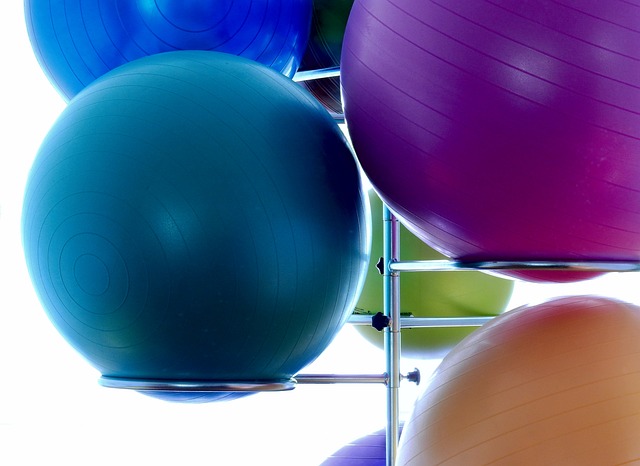Cold plunging and water immersion therapies, like cold baths or ice baths, offer powerful natural solutions for achieving hormonal balance, especially sleep-related hormones. These practices trigger physiological responses that reduce stress hormones like cortisol, boost beneficial hormones such as human growth hormone (HGH) and thyroid function, and enhance melatonin secretion, improving sleep quality. Regular exposure to cold water has been linked to better stress management, reduced hormone levels of stress and other key hormones, and overall improved well-being, providing a natural alternative for endocrine system optimization.
Cold Plunge for Hormonal Balance: Unlocking the Power of Cold Water Therapy
Cold therapy, an ancient practice gaining modern scientific interest, offers a simple yet profound way to regulate sleep-related hormones like melatonin. This article delves into the science behind cold exposure’s hormonal impact, exploring how it naturally boosts melatonin production while reducing stress hormones. By understanding the role of melatonin in sleep cycles and its connection to overall well-being, we uncover why cold water therapy can be a powerful tool for maintaining optimal endocrine health. Through practical tips on integrating cold plunges into daily routines, readers will discover a natural approach to hormonal balance.
# Cold Plunge for Hormonal Balance: Unlocking the Power of Cold Water Therapy
Cold plunging, or immersing oneself in cold water, is a powerful tool for promoting hormonal balance and overall endocrine health. When you subject your body to a cold shock, whether through a cold shower, ice bath, or even a quick dip in a cold lake, it triggers a cascade of physiological responses. One of the key benefits is its ability to reduce stress hormones like cortisol. Chronic elevated cortisol levels can disrupt sleep patterns and impact melatonin production, making cold therapy an effective strategy for improving sleep quality.
The cold water immersion stimulates the release of various hormones that work together to restore equilibrium. For instance, it increases the secretion of human growth hormone (HGH), which plays a crucial role in repairing tissues and regulating metabolism. Additionally, cold exposure enhances the function of the thyroid gland, responsible for managing metabolism and energy levels, further contributing to hormonal harmony. By incorporating regular cold plunges into your routine, you can support your body’s natural hormone regulation systems, leading to better sleep, improved stress management, and enhanced overall well-being.
<section id="understanding-the-hormonal-impact-of-cold-exposure“>
Understanding the Hormonal Impact of Cold Exposure
Cold exposure, especially through practices like cold plunges or immersing oneself in cold water, has a profound impact on our hormonal balance, particularly when it comes to sleep-related hormones. When your body is exposed to cold, whether through a quick dip in an ice bath or simply taking a cold shower, it triggers a physiological response that influences the production and release of various hormones. One key hormone affected is melatonin, often referredd to as the ‘sleep hormone’, which plays a crucial role in regulating our circadian rhythms and promoting quality sleep.
The benefits of incorporating cold water therapy into your routine for endocrine health are well-documented. Cold exposure helps reduce levels of cortisol, commonly known as the stress hormone. High cortisol levels can disrupt sleep patterns and contribute to conditions like insomnia. By lowering cortisol through activities like cold plunges, individuals experience a decrease in stress and anxiety, which, in turn, allows for healthier hormone regulation and better sleep. This simple yet powerful technique offers a natural way to support hormonal balance and enhance overall well-being.
– Delve into the science behind cold therapy and its effect on the human body's hormonal response.
Cold therapy, particularly through practices like cold plunges and water immersion, has gained attention for its profound effects on human physiology. When the body is exposed to cold temperatures, it initiates a series of complex responses designed to protect core bodily functions. One significant aspect of this response is the modulation of hormonal activity, especially concerning sleep-related hormones like melatonin. Melatonin is crucial for regulating sleep cycles and maintaining overall endocrine balance.
Research suggests that cold exposure can enhance melatonin secretion by signaling to the brain that it’s time to prepare for rest. The sudden drop in temperature triggers a cascade of biochemical reactions, including the release of stress hormones like cortisol, which subsequently stimulate the production of melatonin. Regular cold water therapy sessions have been linked to improved hormonal balance, reduced stress hormone levels, and enhanced sleep quality—all vital components of overall health and well-being. This natural approach to hormone regulation offers a promising alternative for those seeking to optimize their endocrine system without resorting to medication.
– Explain how cold water immersion triggers a series of physiological changes, especially in sleep-related hormones like melatonin production.
Cold water immersion, such as a cold plunge or ice bath, triggers a cascade of physiological changes in the body. When you submerge yourself in cold water, your core temperature drops rapidly, causing a stress response known as thermoregulation. This response initiates a series of complex processes that not only help regulate body temperature but also have profound effects on hormone production.
One of the key hormones influenced by cold therapy is melatonin, often referred to as the “sleep hormone.” Exposure to cold water reduces cortisol, the primary stress hormone, and stimulates the release of melatonin. This shift in hormonal balance promotes a sense of relaxation and prepares the body for sleep, making cold plunges an effective tool for those seeking better sleep quality and endocrine health. Additionally, regular cold water therapy has been linked to reduced levels of other stress hormones, contributing to overall well-being and improved sleep patterns.
Cold therapy, particularly through cold plunges and water immersion, offers a natural and powerful way to regulate sleep-related hormones like melatonin. By triggering physiological changes in the body, cold exposure can significantly improve endocrine health, reduce stress hormones, and promote overall balance. Incorporating regular cold water therapy into your routine may be a game-changer for better sleep and well-being. Embrace the benefits of this ancient practice for modern living and unlock a healthier, more balanced you.
